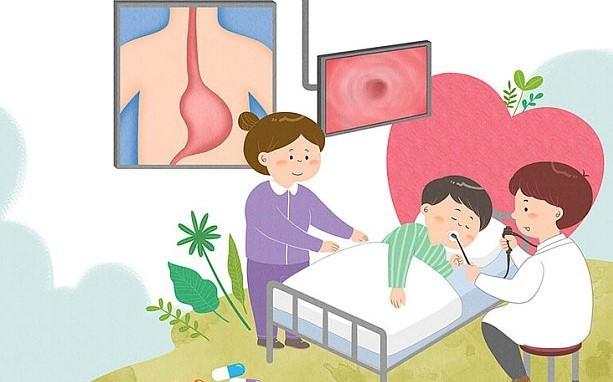Esophageal cancer, morbidity and mortality, ranked 4th and 5th in malignant tumors, respectively. The new cases and deaths of esophageal cancer among our compatriots account for more than 50% of the world's total, with an incidence rate of about 13.4/100,000, compared with 7/100,000 in the Western region. Experts believe that the main influencing factors of this difference are smoking, preference for stimulating food, trace element deficiency, food contamination, and poor nutritional status. The latest research reaffirms that oral microbes are strongly associated with the risk of esophageal cancer. Let's introduce the main points of the relevant research now.

Recently, the team of Chongqing Medical University published a paper in the journal International Biomedical Research that introduced the characteristics of the oral microbiota of patients with esophageal cancer. In this study, 33 patients diagnosed with squamous cell carcinoma of the esophagus were collected, and in addition, 35 locals were selected for control. By taking naturally secreted saliva, the microbial DNA in it is extracted for sequencing and statistical analysis.
Studies have shown that there are differences in the microbiota in the saliva of patients with esophageal cancer and the control group. Specifically, patients with esophageal cancer have more abundant Pachychycetes and Bacteroides, while Proteus are less abundant. In addition, patients with esophageal cancer have higher levels of Streptobol and Prevo's bacteria and fewer Neisseria. Planktonic bacteria and warty microbes were found in the saliva of patients with esophageal cancer, while they were not found in the control group. Moreover, in the saliva of patients with esophageal cancer, carbon dioxide phagocytes were significantly higher than in the control group.
Combined with the findings of other studies, Prevo's bacteria may be associated with the development of esophageal cancer, lower levels of Neisseria may increase the risk of esophageal cancer, and higher concentrations of carbon dioxide phagocytes may be a biomarker for predicting esophageal cancer. Previously, the lack of relevant biomarkers made it difficult for esophageal cancer to be diagnosed in a timely manner at an early stage, and at the same time, it also brought obstacles to the design of treatment options. This study, which determines the relationship between esophageal cancer and different oral microorganisms, as well as the functions of different microorganisms, can be based on these conclusions, and a database can be constructed to provide relevant guidance for the diagnosis and treatment of esophageal cancer.
In our human mouth, there are about 600 common bacteria, most of which are beneficial bacteria, but there are also some bacteria that can cause a variety of diseases. In addition, the study also found that 1 self-beneficial oral bacteria may promote the growth of pathogenic bacteria, for example, Streptococcus Grasella can provide oxygen for actinomycetes, while actinomycetes can infect teeth, gums, and periodontal tissue. As early as 100 years ago, scholars found that bacteria of oral origin can cause infectious endocarditis. It can be seen that oral microorganisms are closely related to our health and present a complex relationship.
Many studies have found that oral bacteria may increase the risk of esophageal cancer, and studies have shown that in 61% of cancer tissues and 12% of adjacent tissues, intermediate Przewalskillus is found, however, this bacterium is not found in the normal esophageal mucosa. In addition, Porphyrinum gingivalis is a resident flora of the oral cavity that can cause disturbances in the gut microbiome, while Clostridium causes an excessive immune response that activates cancer growth genes.
It is worth noting that studies have found that people with gum disease, regardless of whether there is a tooth defect or not, have a 59% increased risk of esophageal adenocarcinoma. A variety of oral bacteria can cause periodontal disease, for example, Porphyrin monas gingivalis can cause inflammation, become resistant to antibiotics, and squeeze out beneficial oral bacteria, causing teeth to fall out. The bacteria also have an impact on the proliferation and metastasis of cancer cells, reducing the survival rate of cancer patients. Disease from the mouth, this health tip has a multifaceted connotation, and oral hygiene is related to the occurrence and progress of a variety of diseases, such as diabetes, cardiovascular and cerebrovascular diseases, etc., therefore, pay attention to oral hygiene, timely detection and treatment of periodontal disease, is a key measure to maintain health, but also a necessary link to prevent esophageal cancer. We advocate that we see the teeth first to improve the awareness of oral health. If you agree with this view, pass the message on to family and friends and family.
Whoever loves, pass on health to whom.